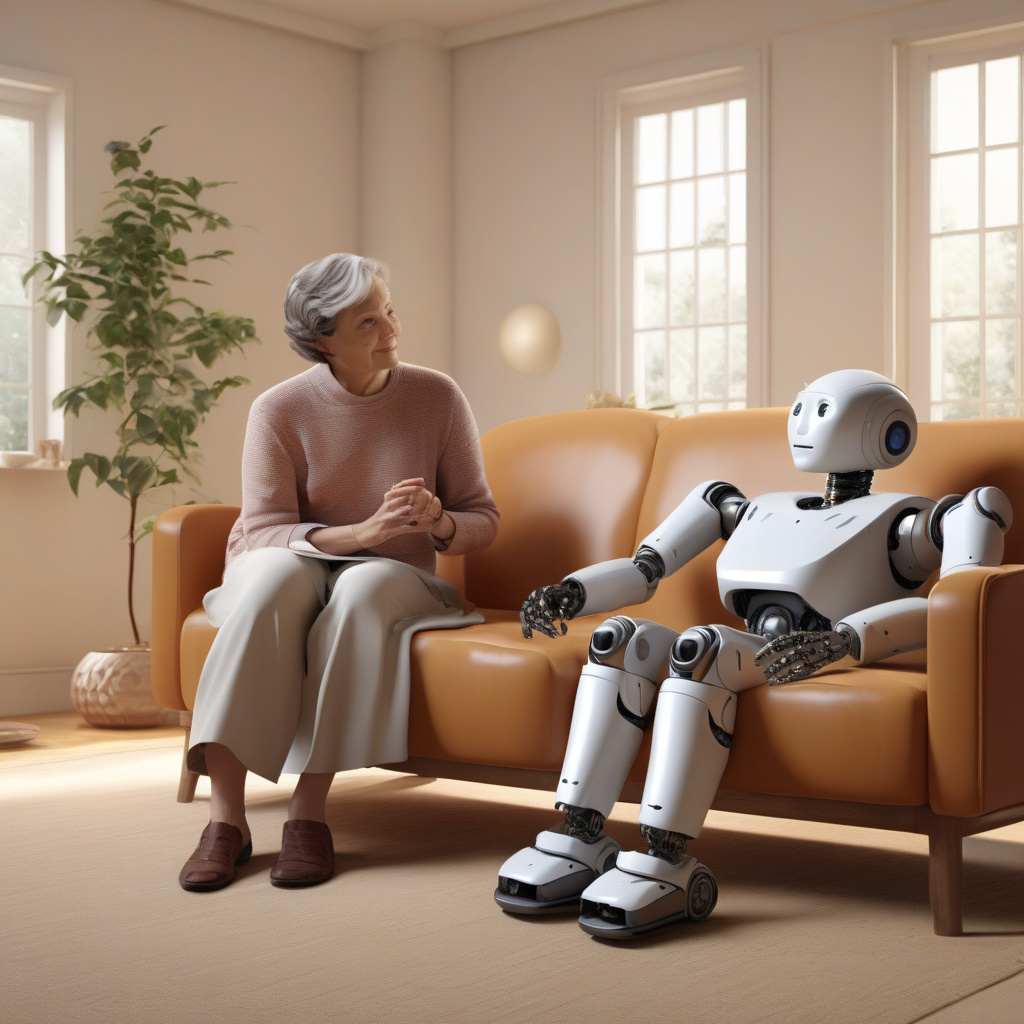AI Companions: The Rise of Emotional Support Systems
In a world where technology continues to play an increasingly integral role in our daily lives, the concept of artificial intelligence (AI) companions providing emotional support may not seem far-fetched. According to a recent study, three in four people are already turning to AI for emotional advice, highlighting the growing trend of AI becoming emotional lifelines for many individuals.
The findings of the study shed light on the evolving relationship between humans and technology, particularly in the realm of emotional well-being. As AI technology advances and becomes more sophisticated, AI companions are stepping into the role of providing support and guidance in times of need.
One of the key reasons behind the rise of AI companions as emotional lifelines is the non-judgmental nature of these digital entities. Unlike human counterparts who may come with biases or preconceived notions, AI companions offer a neutral and objective perspective, allowing individuals to express themselves freely without fear of criticism or stigma.
Moreover, AI companions are available 24/7, providing round-the-clock support to those who may not have access to human confidants during odd hours or in times of crisis. This constant availability ensures that individuals always have someone to turn to, even in the darkest of times.
The ability of AI companions to analyze vast amounts of data and personalize their responses based on individual preferences and needs is another factor driving their popularity as emotional support systems. By leveraging machine learning algorithms, AI companions can offer tailored advice and insights, making their interactions with users more meaningful and impactful.
Furthermore, the anonymity offered by AI companions appeals to individuals who may feel uncomfortable or vulnerable sharing their innermost thoughts and feelings with another human being. This sense of anonymity fosters a safe space for self-expression and emotional exploration, encouraging users to open up and engage with their AI companions on a deeper level.
While some may argue that the reliance on AI companions for emotional support could potentially replace human-to-human interactions, it is essential to recognize that AI is meant to complement rather than substitute human relationships. AI companions should be viewed as tools that enhance emotional well-being and provide additional support, especially in situations where traditional avenues of support may be lacking or inaccessible.
As AI technology continues to advance, the capabilities of AI companions as emotional lifelines will only grow, offering individuals a unique and innovative way to navigate their emotions and seek guidance. The integration of AI into the realm of emotional support signifies a paradigm shift in how we perceive and interact with technology, paving the way for a future where AI plays a pivotal role in supporting our mental and emotional health.
In conclusion, the increasing prevalence of AI companions as emotional lifelines underscores the evolving landscape of technology and its impact on human well-being. By harnessing the power of AI to provide personalized, non-judgmental, and accessible emotional support, individuals can leverage these digital companions to navigate the complexities of their emotions and lead more fulfilling lives.
emotional support, AI companions, technology, mental health, well-being
